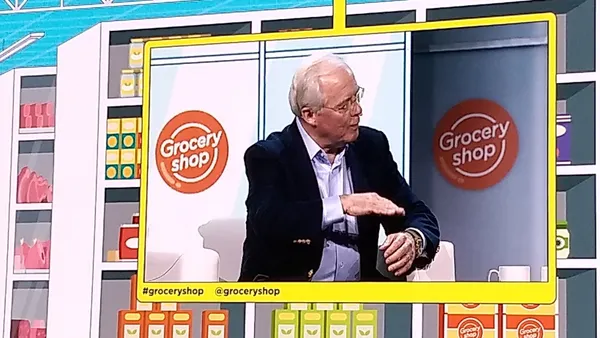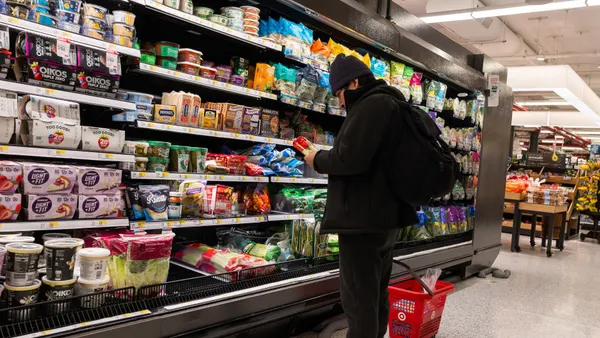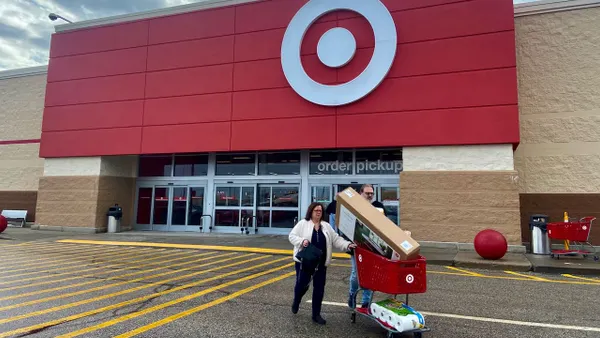Dive Brief:
- Grocers face a gap between consumers’ desire for sustainable food products and packaging and their perceptions of how food retailers are measuring up, according to a recent survey from data and software firm Retail Insight.
- Seventy-seven percent of the 1,000 U.S. consumers surveyed by the firm said they have tried to be more sustainable in their consumption habits in the last 12 months. Nearly half (49%) said they would pay more for green goods, which bumped up to 64% among millennials.
- But what shoppers want isn't matching up with what they are finding in grocery stores, with 67% saying retailers have more work to do to boost their sustainability credentials, Retail Insight found.
Dive Insight:
As grocers look to tap into the consumer base looking to support food brands and retailers helping the environment, Retail Insight's findings indicate they have significant work to do in order to win their trust.
"[Consumers] are actively choosing brands who are genuinely committed to reducing their environmental impact on the planet," Paul Boyle, CEO of Retail Insight, said in a statement. "And this isn’t just impacting sales, it’s redefining customer loyalty; our research shows that 55% of shoppers would be more loyal to a grocery store brands if they perceived the business to be green.”
Retail Insight's findings are similar to recent findings by Cargill that said 55% of global consumers are more likely to purchase a packaged food item with a sustainability claim on the label, up four points from the company's survey in 2019.
Insufficient food waste reduction goals and wasteful packaging stand out to shoppers
When outlining their top sustainability concerns with food retailers, roughly 70% of shoppers noted wasteful packaging for goods at food retailers and not enough focus on food waste reduction in grocers' sustainability targets. Sixty-one percent said retailers are doing too much promotion of "obvious" green efforts, like recycling, and should instead focus on other areas, like food waste.
Many consumers are wary of "green-washing," or exaggerating environmental benefits: 54% surveyed said they think grocers too often give lip service to sustainable initiatives and only 6% said they perceive supermarkets’ sustainability programs stemming from genuine environmental concern.
Retail Insight's findings suggest grocers can improve communication around their sustainability efforts, like providing updates on milestones achieved or sharing what new steps they are taking, particularly around food waste.
Sustainability is a wide-ranging area for grocers to tackle, from turning to renewable energy sources to addressing food waste. The Food Industry Association last week outlined five key ways food retailers can step up their efforts to cut back food waste, including expanding donations of surplus food, developing a composting strategy and standardizing expiration package labeling.
Grocers who succeed in convincing customers of their sustainability efforts can reap financial awards. Along with the almost half of consumers who said they would pay more for green goods, 52% said they would be OK with their weekly grocery bill increasing if it meant they could help the planet, the research found.
Retail Insight pointed to Nielsen's estimate in 2018 that the U.S. sustainable fast-moving consumer goods market would hit $150 billion in sales by 2021.














